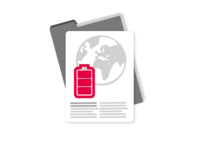According to our partner association VFI (German Importers), on 12 February 2021 the agreement on the planned German Supply Chain Act was presented at the press conference of the Ministries for Economic Cooperation and Development (BMZ), Labour and Social Affairs (BMAS) and Economic Affairs and Energy (BMWi).
Companies are expected to hold their direct suppliers very closely to account, but also to keep an eye on the supply chain as a whole. If a company becomes aware of an irregularity in the supply chain, it should be committed to taking remedial action. According to Peter Altmaier, Federal Minister of Economics and Energy, non-governmental organisations and trade unions will in future be able to represent those affected in court if there are violations of standards in supply chains, because such bodies have very differentiated local knowledge.
According to the ministers, the aim is to combat child labour and paltry wages in the future, but also to ensure greater environmental protection. In a phased plan, the Supply Chain Act is to apply to companies with 3,000 or more employees starting in 2023, followed by companies with 1,000 or more employees as of 2024. Liability under civil law is off the table and will be replaced by a list of offences and fines. Moreover, such companies can be excluded from public tenders.
The proposed version of the Act is intended to transform globalisation in the 21st century, and ministers agree that the consensus was an initial step.
The video of the press conference is available here: https://www.youtube.com/watch?v=R92jdOz1Ym8
If you have any questions on the subject of the Supply Chain Act, please do not hesitate to call Christoph Brellinger on +49/40/750687-0 or send an e-mail message to presse@take-e-way.de.



